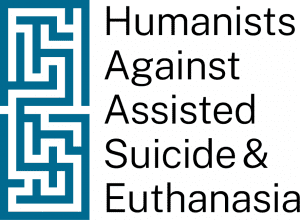By Kevin Yuill. Published in Spiked
Prue Leith, of Great British Bake-off fame, invited her son, Tory MP Danny Kruger, to accompany her on a road trip to areas of the United States where assisted suicide is legal and to Canada, where a much more extensive system of euthanasia and assisted suicide – collectively rebranded as ‘medical aid in dying’ (MAiD) – was legalised in 2016.
The catch is that they are on different sides of the issue. Prue has been a member of Dignity in Dying since her older brother died ‘a horrible death’ in 2012. Danny (or ‘Daniel’, as his mother insists on calling him throughout the programme) is chair of the All Party Parliamentary Group, Dying Well, and a fervent opponent of legalised assisted dying. Prue is an atheist; Danny is a conservative Christian.
The resulting programme aired on Channel 4 on Thursday night is perhaps the best yet produced so far on this thorny issue. Too often, assisted dying (as it is euphemistically called) is dramatized – either in soaps and films or in one-sided documentaries – as a personal issue for a dying person. This programme – thoughtful, balanced, and considered – for once looked at both points of view but also considers the issue from a more thoughtful, less emotive angle.
The film starts in Prue’s kitchen where she toasted crumpets (what, no fresh cakes?) for him. The film is interspersed with many mother-and-son moments that lighten what is undeniably a dark subject. ‘Don’t forget your jacket, Daniel’, she chides, and straightens his collar before they meet one of the doctors involved.
We go first to the state of Washington, where assisting a patient to end their life – assisted suicide – is legal but euthanasia is not. This is Prue’s turn to impress upon Danny the rightness of legalisation. A woman called Sher talks movingly of how her parents, diagnosed with Parkinson’s and terminal cancer, chose to die together. This is powerful – if a little New Agey – stuff.
In fact, nearly all of part one sees – for my money – Prue shading it. They travel from Washington to Atlanta to interview a doctor who questions whether assisted suicides are any more peaceful than executions. Prue sees this as a red herring; shouldn’t we adjust the drugs rather than ban assisted dying, she asks? ‘I think you’re scaremongering, Daniel. To which he replies: ‘I think YOU’RE scaremongering (this is usually as far as arguments in our family go but all credit to them for persevering). ‘People are unlikely to die terrible and agonizing deaths.’ Touché. Just over one per cent suffer as they die in the UK, according to the pro-assisted suicide organization Dignity in Dying, giving us generally good odds.
From this moment in the film Danny triumphs. They cross the border from Washington to Vancouver Island in the Canadian province of British Columbia. This is new territory for assisted dying journalism. Canada is a no-go area for proponents of legalised assisted dying. In the UK, the well-funded organization Dignity in Dying (formerly the Voluntary Euthanasia Society) mentioned Canada 88 times in tweets between 2016 and 7 May 2022. Since stories of people being euthanized because they were poor or homeless [links to my stories], Dignity in Dying has been silent about Canada.
We meet Dr Stephanie Green, who comes across well despite the fact that she has dispatched at least 300 people. In Canada, euthanasia – where the doctor injects the patient with poison rather than simply prescribing the poison, like in Washington – is legal and for all but seven of the 10,064 MAiD cases in 2021, preferred. Green seems like a good and caring doctor, hesitant about approving MAiD for Jan, a retired carpenter living with advanced Parkinson’s, at his first consultation to qualify for Canada’s Medical Assistance in Dying (MAiD). (as the program notes at the end, Jan has now been approved).
However, Green starts to unravel slightly in relation to language and we begin to see the self-deception involved in this practice. In response to a question from Danny about the Hippocratic oath’s prohibition on killing, she squirms. ‘I don’t believe I’m killing patients. I believe the illness and disease are killing the patients. We don’t say killing’, she says, just before demonstrating how the doctor injects lethal substances into the patient.
There are sober ruminations as they look out onto a beautiful vista of houseboats. Prue: ‘It’s often the lack of dignity and joy in life’ that make people opt for an assisted death. Then on to Toronto, where Prue is made uncomfortable by the disturbing case of Roger Foley, a disabled individual who was offered MAiD but not medical care though he was not terminally ill. They also meet Dr Ramona Coelho who thinks the Canadian legislation has gone too far, threatening the disabled, vulnerable and old. She tells them of other cases where MAiD is offered to patients who are curable and did not express an interest. “That’s a terrible story’, admits Prue.
Canada is proposing allowing MAiD for people with just a mental illness from next year. Prue says that she’s ‘on the fence’ about assisted dying for mental illness alone. Danny isn’t. ‘If someone was trying to jump off a bridge’, he says, ‘the natural inclination would be to try and top them. So why is this any different?’
They meet John Scully, a former BBC and CTV journalist who has suffered extreme depression and PTSD for 30 years. He wants to be allowed an assisted death when it becomes legal. He attempted suicide twice but he can’t do it anymore because ‘it’s a mess, I screw it up, and it is terribly devastating to the families’. Prue, obviously rattled, says she is conflicted. Danny concludes – correctly, in my view – that this story goes to the heart of the debate. ‘Should a patient’s wishes trump the wider impact on society?’
If death is medical treatment for suffering, how can it be denied to anyone who suffers?
Canada is the future of assisted death. If death is medical treatment for suffering, how can it be denied to anyone who suffers? All credit to this programme for not avoiding the situation in Canada despite the lobbying power of rich organizations like Dignity in Dying who spin the globe past Canada to point to New Zealand as an example of how assisted dying should work. Only a handful of Canadian deaths so far are ‘Track 2’ where death is not ‘reasonably foreseeable’ but where the patient suffers irremediably and unbearably. Because of increasing alarm over such cases Canada has been forced to delay MAiD for those who only suffer from mental illness.
The best safeguard against the horror stories in Canada, of course, is not to legalise any sort of assisted dying in the first place. Let us hope that as many people as possible in the UK and its dependencies – the Isle of Man and Jersey are currently considering legalisation – see this documentary.







 What do the public understand assisted dying to mean? We are raising money to conduct a poll to find out.
What do the public understand assisted dying to mean? We are raising money to conduct a poll to find out.